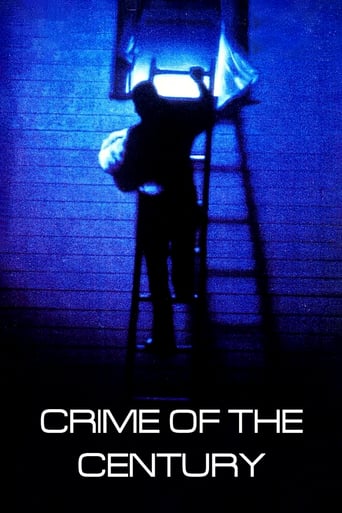



Very well executed
Brilliant and touching
Absolutely Fantastic
After playing with our expectations, this turns out to be a very different sort of film.
View MoreBe very careful about accepting anything this film tells you. It's based on Ludovic Kennedy's book which is equally untrustworthy. The accusations against the police and state troopers made me really angry.One of the most blatant distortions is when we see a cop looking over Hauptmann's shoulder and demanding that he misspell certain words, with Hautmann saying, "That's not the right spelling. I know how to spell." What the audience isn't told is that the police had found Hauptmann's notebooks and other of his writings, unconnected with the case and some dating from years earlier, in which he uses the exact same misspellings of certain words as in the ransom note.The ransom money, the fact that Hauptmann had been out of work for ages yet, just days after the kidnapping, suddenly started spending big money on luxury items, the piece of wood from the ladder which matched exactly the gap in Hauptmann's floorboard, the marks of his tools on the ladder, the fact that he'd burgled a house in Germany using a home-made ladder, all the evidence against him is completely damning.But of course the public love nothing better than a good conspiracy theory and there are always sensational authors on hand to supply them, however absurd they may be. As one of the most knowledgeable websites on the case puts it:"Today, the Lindbergh phenomena is a giant hoax perpetrated by people who are taking advantage of an uninformed and cynical public. Notwithstanding all of the books, TV programs, and legal suits, Hauptmann is as guilty today as he was in 1932 when he kidnapped and killed the son of Mr. and Mrs. Charles Lindbergh."This is a terrible movie. Don't believe a single word of it.
View MoreThis is a pretty shameless piece of film-making. There is absolutely no hard evidence to support the film's flat claim that Bruno Hauptmann was entirely innocent, and most accounts of the Lindbergh kidnapping case, even those which cast doubt on his conviction, suggest that he was an arrogant, boorish man, not the kindhearted saint presented here. It's as unscrupulously manipulative as Ludovic Kennedy's original book, which has the temerity, in a work of non-fiction, to tell us what people were thinking about - and more than 60 years ago at that. There is, similarly, no back-up offered for the vilification of several of those responsible for Hauptmann's conviction. There are plenty of reasons to view the case with alarm, and to believe that Hauptmann was the victim of a miscarriage of justice (which doesn't necessarily mean he was innocent). To present so biased and distorted an account of the case does no good to the cause of getting at the facts. Stick with 1976's "The Lindbergh Kidnapping Case", which sustains a neutral viewpoint - and is far more disturbing.
View MoreCrime of the Century fails much in the same way the system of justice failed in the prosecution of for the kidnapping and murder of Charles Lindbergh's baby in the 1930s, not enough evidence.I know Mark Rydell (On Golden Pond) to be an extremely sensitive filmmaker and stage director, his motivation here, I'm sure was to present an alternative to Hauptmann's guilt, to entertain ideas that the prosecution may have erred. The evidence was only circumstantial, of the course the crime was horrible, but Hauptmann's execution may have been more a result of public outrage than guilt beyond a reasonable doubt.And he may be right, based on everything I've read, he probably is right. Unfortunately all the probabilities in the world add up to nothing on screen. After only a couple of suppositions the viewer gets so lost in the ultimate goal of the story that he loses interest. I've watched this film 3 times, and lost interest every time.What a waste of terrific actors, including Stephen Rea, J.T. Walsh, Michael Moriarty, Vyto Ruginis, Barry Primus, and Allen Garfield.Without closure, as long we as know as little as we do about what actually happened, maybe this story is best left to the true-crime section of the local bookstore, or Investigative Reports, Dateline, or 20/20. Told this way, in this medium it's a sad waste of time.
View MoreCall me a bleeding-heart liberal, but I guess I'm a sucker for movies about people who are wrongly accused. This movie, however, failed to move me, even though I've read books on the subject and the case itself moves me. Rydell and Nicholson do a good job setting up the circumstances that led Hauptmann to become a suspect, and to even arouse suspicions in us, but the dialogue and individual scenes fall completely flat, because they're obvious and heavy-handed. To make matters worse, some of the actors, like David Paymer and Allen Garfield, seem to have been told they were in an over-acting contest. Walsh is good, as is the ever dependable Moriarty, but Rea seems lacking as Hauptmann.
View More